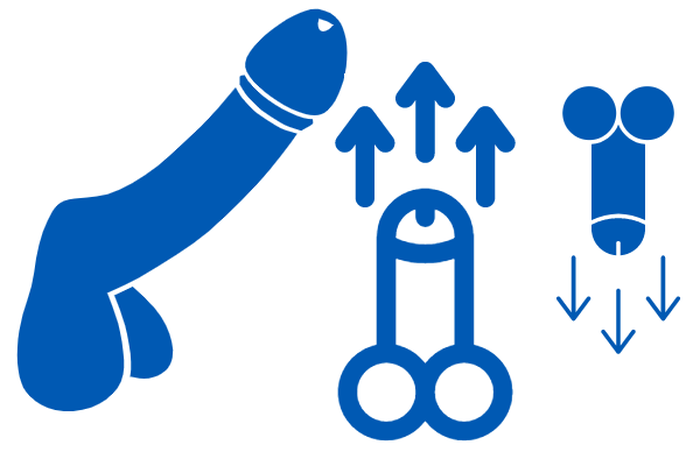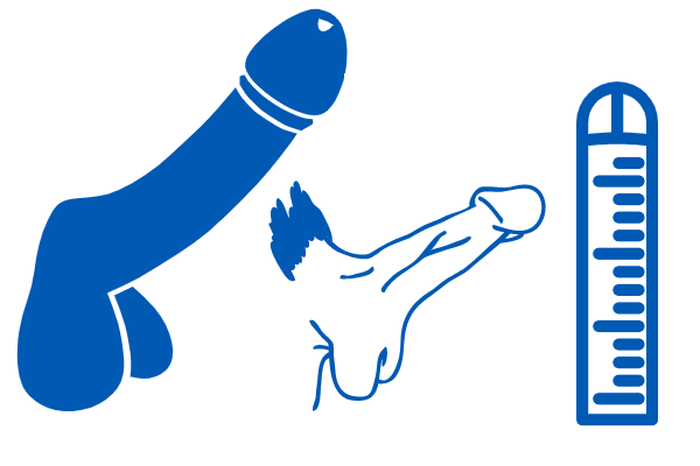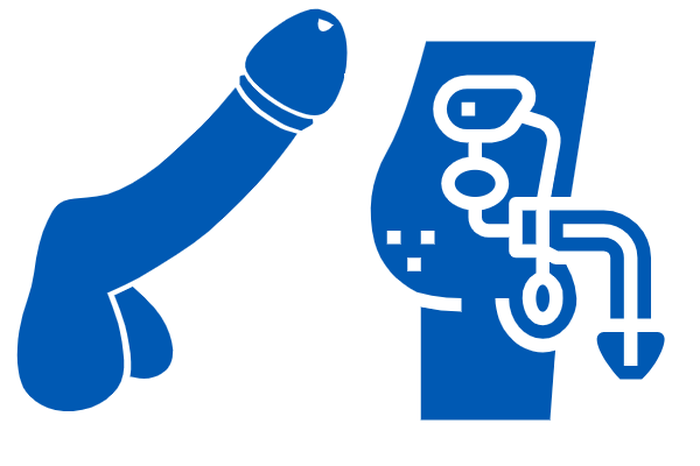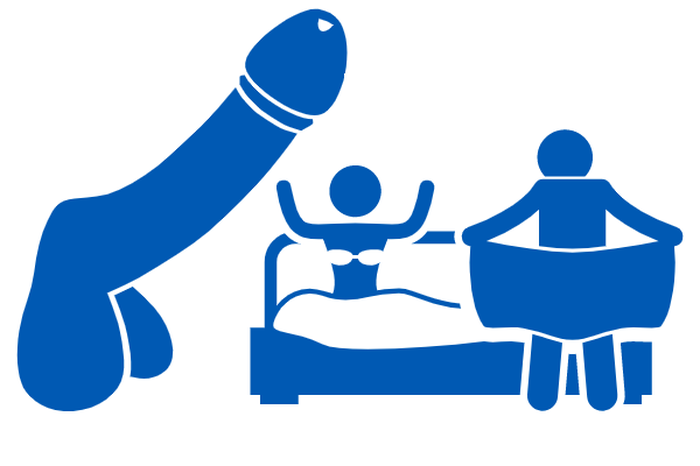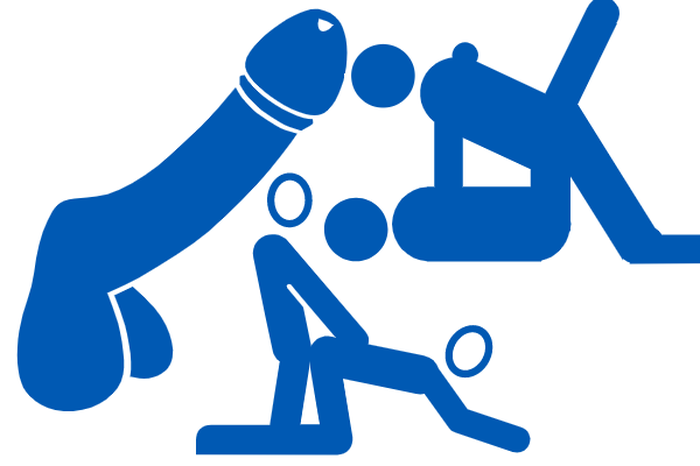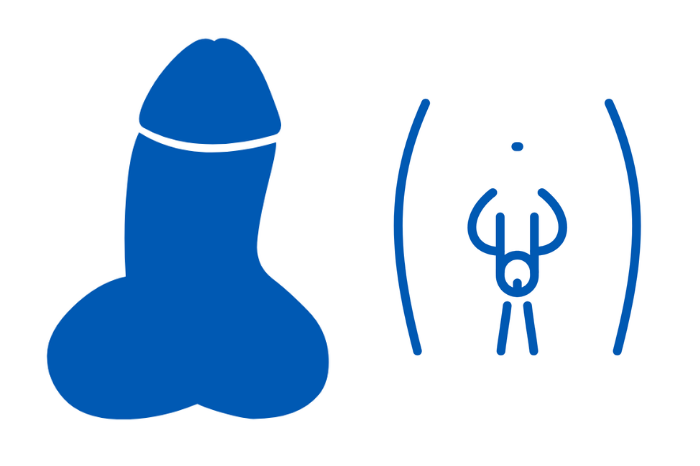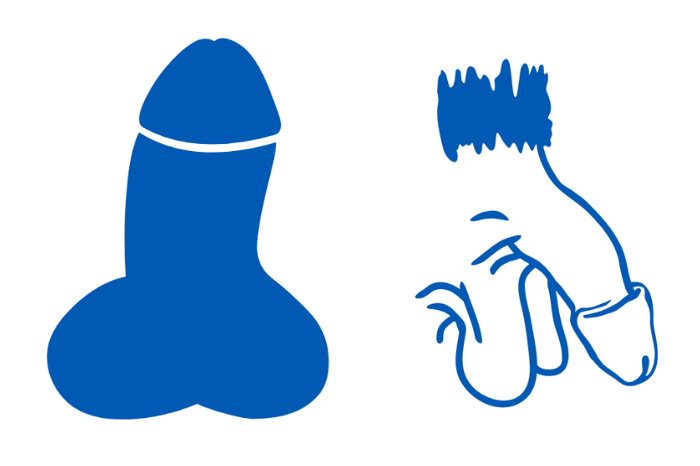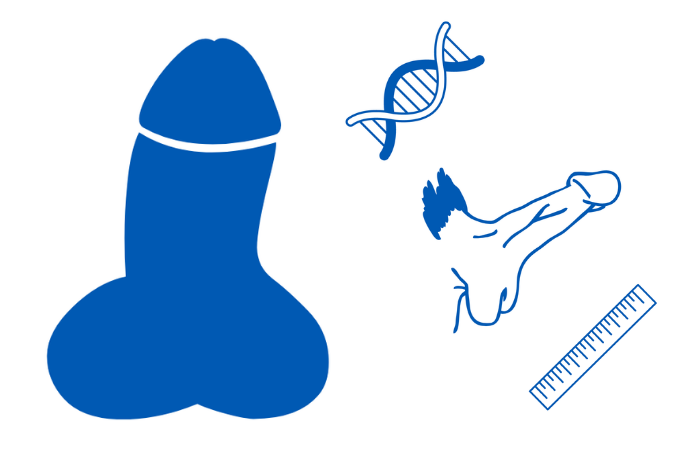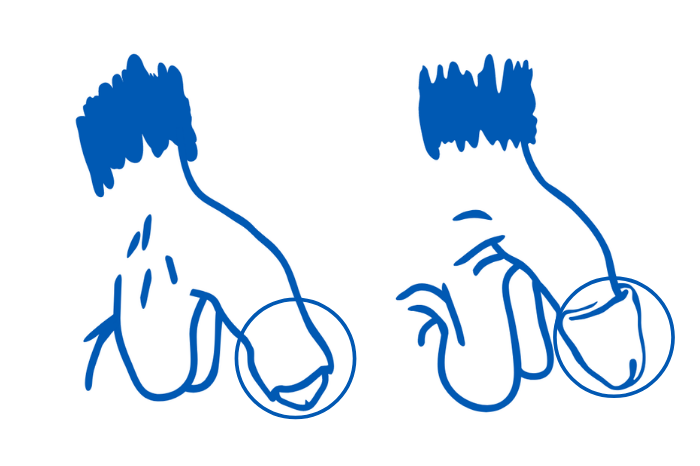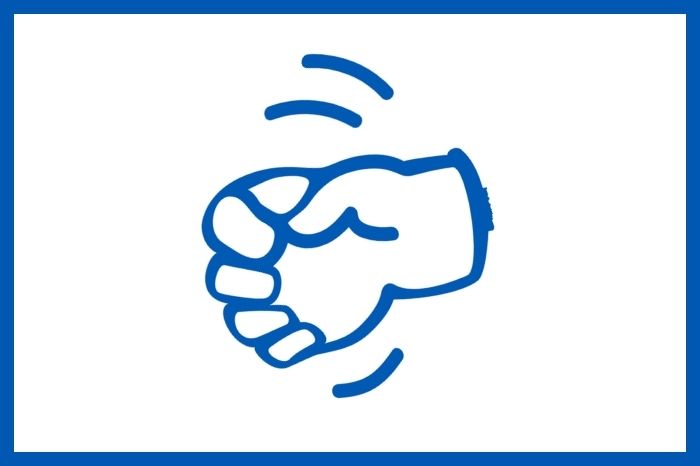What is Erectile Dysfunction and Sexual Impotence? A Complete Guide to Causes
Erectile dysfunction is a relatively common problem among men over 40 years old. However, it can also manifest in younger men. In fact, there is no rule, as all men are subject to this problem. However, the causes are diverse and it is common to have an association between them.

Find out now what causes erectile dysfunction. But first, see the concepts about the penis and erection.
What are the parts of the penis?
The penis is the male reproductive organ. Through it, a man transfers semen to the woman's uterus. Semen is the liquid rich in sperm that are necessary for reproduction of the species.
In the penis several characteristic anatomical elements can be recognized, including:
- The corpora cavernosa inside the penis, through which the so-called cavernous arteries flow;
- The spongy body, where the urethra is located. The urethra serves to expel sperm and urine from the bladder;
- The head or glans of the penis, in which lies the external opening of the urethra, called the urinary meatus;
- The foreskin, which is the layer of skin that covers the glans;
- And the scrotum, which stores the testicles that produce sperm.
What is an erection?

The phenomenon of penile erection is a spinal reflex that involves the direction of blood flow to the cavernous arteries and the consequent increase in the size and firmness of the penis.
During erection, if the blood supply to the corpora cavernosa is sufficient, the penis will become erect. If, on the other hand, the blood flow is less than the actual capacity of the corpora cavernosa, the erection and size increase of the penis are less.
Therefore, erection is a complex physiological response that reflects the state of male sexual arousal and depends on a perfect integration of vascular, endocrine, neurological, muscular, and emotional mechanisms.
What is erectile dysfunction?
Erectile dysfunction is the inability to have or maintain a penile erection, even when a man feels sexual desire.
The presence of the condition among men is a source of embarrassment and can have a markedly negative impact on their mood, romantic relationships, and overall quality of life.
Are erectile dysfunction and impotence the same thing?

According to some schools of thought, the term sexual impotence is synonymous with erectile dysfunction. According to others, impotence includes a wide and varied spectrum of sexual disorders, concerning the ability to achieve an erection, the phenomenon of ejaculation, the orgasmic phase, etc.
What do the statistics say
Erectile dysfunction is a very common condition, especially among older men. The most reliable statistical surveys report that:
- About half of men aged 40 to 70 complain of some degree of erectile dysfunction;
- About 10% of men aged 40 to 70 suffer from severe erectile dysfunction;
- About 5-10% of men under 40 suffer from this disorder;
What are the causes of erectile dysfunction?
The causes of erectile dysfunction are numerous. The more or less pronounced inability to achieve an erection can depend on some physical conditions, specific psychological conditions, the use of certain medications, and other additional circumstances.
1. Physical causes of erectile dysfunction
Doctors distinguish five types of physical causes:
- Traumatic physical causes, which include all circumstances where trauma to the penis is causing the inability to become erect. This is called post-traumatic erectile dysfunction.
- Vascular physical causes, which include all conditions that impair blood supply to the penis. Erectile dysfunction due to these conditions is called vasculogenic erectile dysfunction.
- Neurological physical causes, which include conditions that compromise the health of the nervous system and its control over the penis. This is known as neurogenic erectile dysfunction.
- Hormonal physical causes, which alter the production of hormones involved in the phenomenon of penile erection. Erectile dysfunction due to these conditions is called hormonal erectile dysfunction.
- Anatomical physical causes, which include all medical conditions that involve anatomical alteration of the penis. Erectile dysfunction dependent on these conditions is known as anatomical erectile dysfunction.
Traumatic physical causes
According to some research, about 15-25% of men who suffer severe trauma to the head of the penis develop erectile dysfunction.
Doctors also consider erectile dysfunction resulting from penile damage to those that may occur during genital surgery.
Vascular physical causes
The vascular conditions that can cause erectile dysfunction are cardiovascular diseases, such as atherosclerosis and heart diseases. Others include hypertension, diabetes, and their complications.
Neurological physical causes
Among the neurological causes of erectile dysfunction are multiple sclerosis, Parkinson's disease, spinal cord injury, and stroke and its complications.
Hormonal physical causes
Typical examples of hormonal conditions that can cause erectile dysfunction are hypogonadism, hyperthyroidism, hypothyroidism, and Cushing's syndrome.
Anatomical physical causes
The most well-known anatomical anomaly capable of causing erectile dysfunction is called Peyronie's disease.
Curiosity about erectile dysfunction
Until a few years ago, experts believed that about 90% of erection problems were purely psychological in origin, but recent studies in the neurophysiological, hemodynamic, and pharmacological areas have shown that erectile dysfunction is, in at least 50% of cases, linked to an organic cause, such as one of the physical causes listed above.
2. Psychological causes of erectile dysfunction

Emotional mechanisms play a role in the ability to achieve an erection. Therefore, having or not having a good erection depends on emotional and mental health.
Having specified this, doctors consider the psychological causes of erectile dysfunction to be:
- Depression: prolonged periods of low mood, sadness, and discouragement without apparent reason. This can affect the ability to have a good erection;
- Anxiety: situations of discomfort, excessive worry, and fear about something in the future.
3. Medications that can cause erectile dysfunction
- Diuretics: used to increase urine production. They are indicated in the treatment of diseases such as hypertension, heart failure, and kidney disease;
- Antihypertensives, such as beta-blockers: used to treat hypertension;
- Lipid-lowering agents: medications that lower blood lipid levels;
- Antipsychotics: used to treat some mental illnesses, primarily schizophrenia;
- Antidepressants: primarily indicated in the treatment of depression and, secondarily, in the treatment of certain types of pain;
- Corticosteroids: primarily used as anti-inflammatories and immune system suppressors;
- H2 blockers or histamine H2 receptor blockers: through a specific biocellular mechanism, they reduce the production of acidic digestive juices by the stomach. Doctors prescribe H2 blockers to treat conditions such as gastritis, peptic ulcer, gastroesophageal reflux, etc.;
- Anticonvulsants: used to treat epilepsy;
- Antihistamines: used to treat symptoms induced by allergic reactions;
- Antiandrogens: they function to prevent or inhibit the biological effects of androgens, the male sex hormones. They are used in the treatment of benign prostatic hyperplasia, hirsutism, male androgenetic alopecia, etc.;
- Cytotoxic: a category of chemotherapy drugs indicated in the treatment of tumors.
4. Other causes
Other possible causes of erectile dysfunction are alcohol abuse, smoking, excessive fatigue, and the use of drugs such as cannabis, heroin, or cocaine.
Does cycling cause erectile dysfunction?
According to some scientific studies, cycling, when practiced excessively, could be associated with a certain degree of erectile dysfunction, as it would cause damage to the pudendal artery, the blood vessel that serves the penis.
How to cure erectile dysfunction?
In general, the treatment of erectile dysfunction depends on the triggering cause. This implies that the treatment varies from person to person.
Find out the best treatments for erectile dysfunction here.
FAQ
What are the physical causes of erectile dysfunction? Physical causes can be traumatic, vascular, neurological, hormonal, or anatomical in nature.
What are the psychological causes of erectile dysfunction? Psychological causes can include depression and anxiety.
Can medications cause erectile dysfunction? Yes, some medications, such as diuretics, antihypertensives, antipsychotics, and others, can cause erectile dysfunction.
Does cycling cause erectile dysfunction? Excessive cycling may be associated with erectile dysfunction due to potential damage to the pudendal artery.



